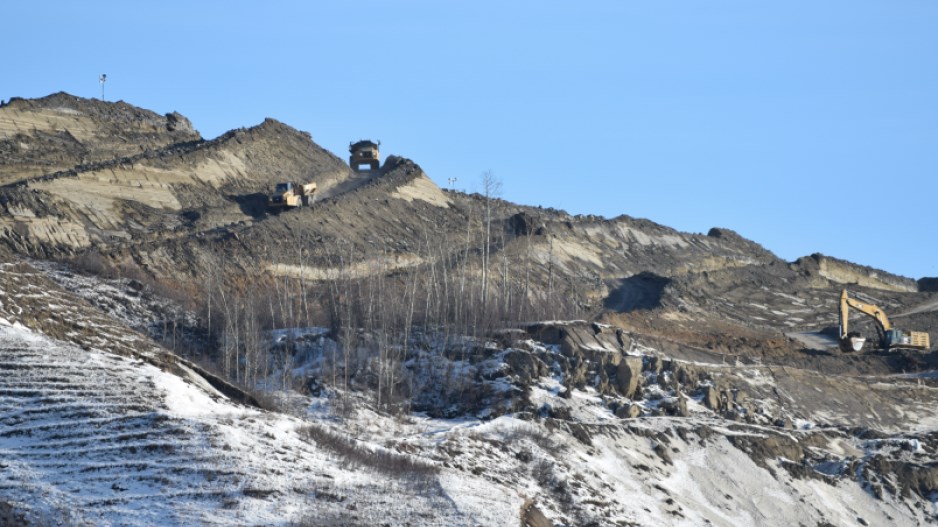The $8.8 billion Site C dam appears to be on budget, but is vulnerable to delays that could boost the final costs to between $9 billion and $12.5 billion, according to an official report commissioned by the BC Utilities Commission (BCUC).
The report was conducted by Deloitte LLP, which warns that there is a real possibility the project could be delayed by a year, which would drive up costs
The BCUC is conducting an accelerated review of Site C dam. The new NDP government has asked the BCUC to determine whether the project can be completed on budget and what the implications to ratepayers would be of moving ahead with it, cancelling it or mothballing it.
The BCUC has until Sept. 20 to issue a preliminary report. It is considering more than 100 written submissions, including two recently concluded reports from Deloitte – one a review of the Site C construction, and the other on BC Hydro’s load forecasts and alternatives to the dam.
The estimated capital cost of Site C dam is $8.3 billion, but the government has a $440 million project reserve and $794 million contingency built into the project.
“As the project continues to operate within both the existing schedule and budget (and unallocated contingency), today the project remains on time and on budget,” the Deloitte report states.
But staying on budget is dependent on sticking to timelines, which could be jeopardized by geotechnical problems that have arisen.
A critical piece of the work that needs to be done to keep the project on budget is a river diversion, slated to start in September 2019. A one-year delay would eat into the project’s contingency.
“At this date, the success of the project is dependent on achieving river diversion in September 2019,” Deloitte report warns.
If the river diversion project does not proceed on time, Deloitte warns the project could be delayed by one year, which could boost the final capital costs of the dam project from the current $8.8 billion to between $9.1 billion and $10 billion.
A delay of more than one year could drive the final costs as high as $12.5 billion.
Those calculations, it should noted, are based solely on contracts already awarded – about 45% of the total project. They don’t factor in any potential escalation of costs for things like transmission lines, or generating station and spillway, as those contracts have yet to be awarded.
Estimates on the contracts not yet awarded were not considered as part of Deloitte’s review because there is “limited data” available on those contracts.
There are good reasons to fear a delay. The consortium doing the main civil works – Peace River Hydro Partners (PRHP) – has encountered geotechnical problems, and one of its partners, Petrowest Corp. (TSX:PRW), has been forced into receivership and has been terminated from the consortium.
Tension cracks in one of the river banks from road construction have led to delays, and the PRHP consortium has submitted updates to BC Hydro that suggests there could be a seven-month delay in starting the river diversion.
After conducting a scenario analysis, Deloitte concluded that that would push the river diversion start date to September 2020.
“The project is facing significant schedule and cost pressures,” the Deloitte report states. “With respect to the project schedule, both PRHP and BC Hydro recognize that the 2019 river diversion is at risk.
“The recent termination of Petrowest from the PRHP general partnership, and claims from PRHP against BC Hydro, are additional considerations in the schedule and cost risks.”
As of June, BC Hydro had awarded contracts totaling $4.5 billion, although only about $1.8 billion of the work is done. However, it is expected that another $300 million will have been spent by the end of December, which would put the sunk costs at $2.1 billion.
But there are also costs associated with terminating contracts that have already been awarded. Some of the work is already underway.
For example, Voith Hydro Inc., the company awarded the contract for designing and manufacturing six turbines and six generators and associated equipment, has already completed the design work, but has not yet begun fabrication. However, it has already built a fabrication plant at the dam site.
Deloitte calculates that suspending the project would cost an additional $1.4 billion. Terminating it outright would cost an estimated $1.2 billion. So, the sunk costs of suspending or terminating the project would total between $3.3 billion and $3.5 billion.
That’s a far cry from the $7 billion that BC Hydro estimated it would cost to terminate the project, although BC Hydro’s estimate also included the cost of acquiring additional power from other sources.
Following a preliminary report on Sept. 20, the BCUC will hold a series of public meetings and gather feedback.




